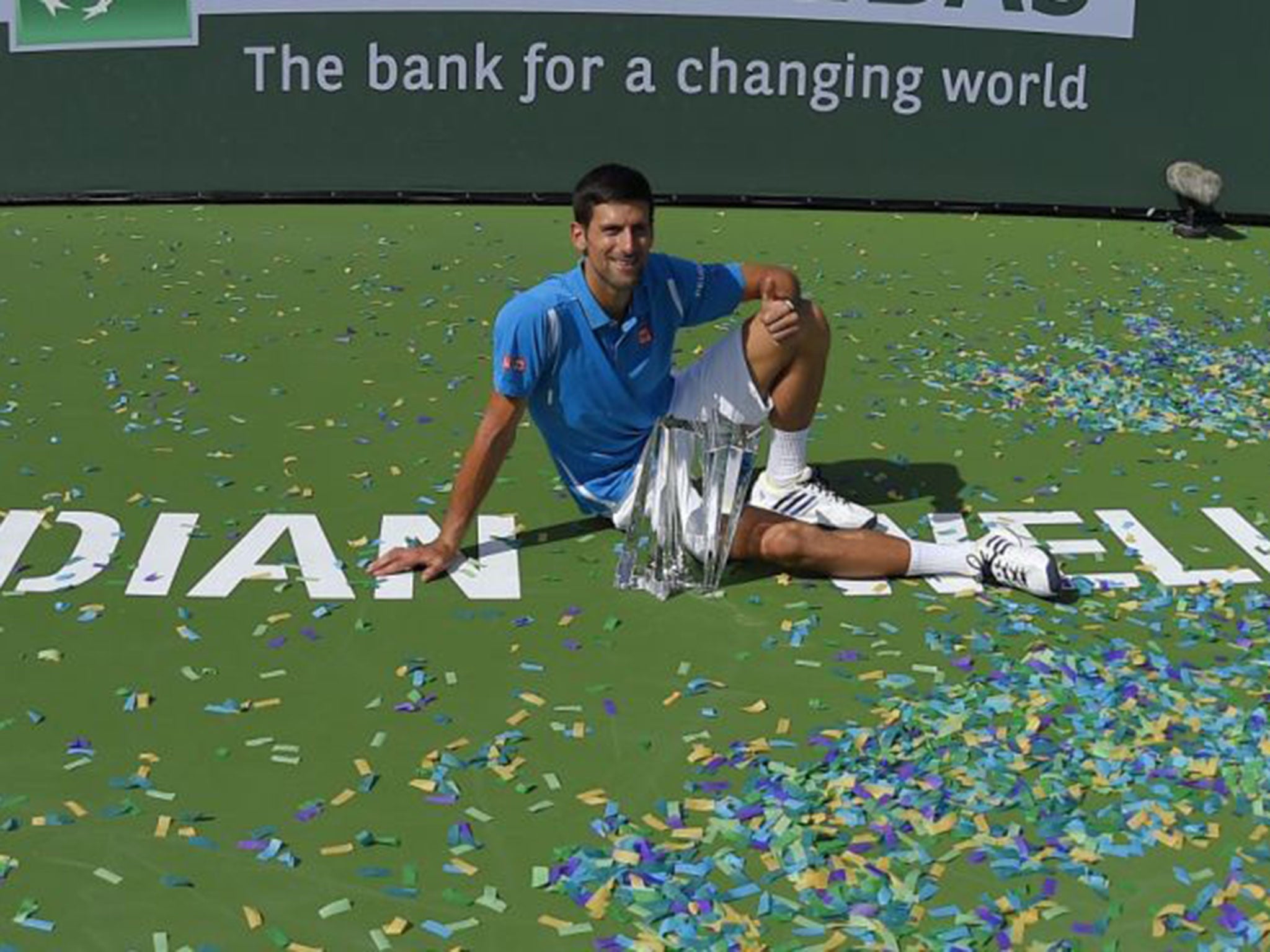In defence of Djokovic, men's tennis is more compelling - and shouldn't we let the free market decide?
It could be argued that equalising women’s prize money when they generate less income is patronising, if not insultingly paternalistic, and that free market economics should determine rewards


Before we come to the sporting sexism row du jour, as presented by the lingeringly Neanderthal game of lawn tennis, let me state a long and passionately held belief. By an incalculable margin, men are the weaker, feebler and generally inferior half of the species.
I write this, for the record, as a male myself. Not an alpha male, obviously, or even a beta. Quite how far you need to descend for the right letter is a matter of indecently tiny interest to anyone. But as delta, epsilon, zeta and eta shrink in the rear view mirror, let’s plump for omicron and leave it there.
One of the many hideous flaws that drag this wretch so far down the Greek alphabet is an obsession with sport that might be considered, without any flippancy, as a low-level spectral disorder. No one sharing a postcode with their right mind could imagine that spending five unbroken hours studying results from ancient world snooker championships, or memorising statistics from Wisden, or attempting to name all 92 football league clubs on an online quiz site, is how an adult should pass his or her time.
For me, as for many men, sporting statistics offer a delusory path to finding order in a chaotic world (see Rain Man and his baseball cards). Women in my experience find this both pitiful and mystifying. As they, not generally being emotionally stunted, have every right to do.
They also have a perfect right, as we all do, to be irritated by Raymond Moore, who resigned as CEO of the Indian Wells tennis tournament after insulting women’s tennis as an over-indulged passenger of the men’s game. Moore, who advised “lady players” to “go down every night on their knees and thank God that Roger Federer and Rafael Nadal were born, because they have carried this sport,” is a Neo-Feminist Studies magna cum laude graduate from Richard Krajicek University. The latter is the gallant Dutchman who, a few years before winning Wimbledon in 1996, dismissed a modest 80 per cent of all women players as “fat lazy pigs”. Krajicek is now an annual fixture in the BBC’s coverage of the event, an honour he shares with John Inverdale, the Andrea Dworkin of smugly narcissistic sporting anchors, who once asked Marion Bartoli whether what propelled her on the path to the Wimbledon title was not being much of a looker as an adolescent.
In a noble bid to rebut the Inverdale Theory of Female Sporting Motivation, Raymond Moore cited two women as causes for optimism. If the WTA (Women’s Tennis Association) now depends solely on the glory reflected by this golden age in men’s tennis, he suggested, it has “a handful … of very attractive prospects that can assume the mantle. You know, Garbiñe Muguruza, Genie Bouchard.” However, since Bouchard has cascaded down the rankings lately, you must presume that the attractiveness he had in whatever passes for his mind concerns her Colgate model features, and not her two-handed backhand.
Just when the outrage seemed set to die at the hand of Moore’s resignation, Novak Djokovic chose to microwave a potato, which had, one naively assumed, cooled long ago. Almost a decade after prize money was equalised at the important events, the Serb, while admiring the ladies’ pluck in struggling for equality, posited that the men should receive more because their crowds are larger.
This is where the debate becomes a little more complex. It could be argued that equalising women’s prize money when they generate less income is patronising, if not insultingly paternalistic, and that free market economics should determine rewards. If there were huge profits to be made from selling TV adverts during lengthened women’s matches, after all, their grand slam matches would be extended to five sets rather than three.
This begs the intriguing question of why women’s tennis is less popular, with both genders, than men’s. An obvious explanation is that we are experiencing a dull era in the women’s game. The near total dominance of Serena Williams, who joined the wondrous Billie Jean King in lacerating Moore’s buffoonery, has precluded any rivalry. Meanwhile, the men’s game has feasted on several of the most captivating rivalries – perm any two from Federer, Nadal, Djokovic and Andy Murray – in history.
But it goes deeper than that. Somehow, men’s tennis is more compelling. Driving from London to Edinburgh recently, a friend and I did what sad little nebbishes do on long journeys, and spent hours quizzing each other about sport. We instantly listed the Wimbledon men’s singles champion and runner-up for every year since 1969 (did I mention sad nebbishes?). With the women, though we watched every final, we couldn’t remember the years and opponents in even the classic finals won by Martina Navratilova. But we had no problem locating the year Pete Sampras beat an obscure Frenchman, Cédric Pioline, in an indescribably tedious final.
The depressing discrepancy is impossible to explain solely in terms of social conditioning. The best I can manage is that tennis, for all its natural beauty, is a startlingly brutal battle of wills. Its heart lies in psychologically crushing the enemy. We watch tennis, in other words, at least as much for the primitive craving for supremacy it reveals as the grace of Federer’s forehand or the majesty of Serena’s serve. And when it comes to the infantile, egomaniacal need to dominate – if at nothing else other than physical strength and the capacity to waste a lifetime poring over sporting lists – the half of the species with gonads wins hands down.
Join our commenting forum
Join thought-provoking conversations, follow other Independent readers and see their replies
Comments
Bookmark popover
Removed from bookmarks